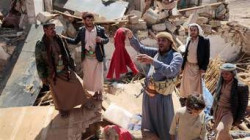U.S. Administration’s Crimes in Yemen is Fraying
Since Saudi Arabia and its allies intervened in Yemen’s war in March 2015, the United States gave its full support to a relentless air campaign where Saudi warplanes and bombs hit thousands of targets.
Six years later, more than a dozen current and former U.S. officials say the legal risks have only grown as President Trump has made selling weapons to Saudi Arabia, the United Arab Emirates and other Middle East nations a cornerstone of his foreign policy.
No episode in recent American history compares to Yemen, where the United States has provided material support over six years to the Saudi-led coalition for actions that have caused the continuous killing of civilians.
U.S. officials have had full knowledge of the pattern of indiscriminate killing, which makes them legally vulnerable.
Charges against Americans over Yemen could be brought in an international tribunal if one were set up to investigate atrocities in that war.
Quickly became clear that the Saudis and their partners at the time, including the Emiratis, were either using the bombs negligently or deliberately aiming them at civilians.
Human rights groups linked American bombs to attacks on homes, apartment buildings, factories, warehouses, a cultural center, an agricultural complex, a primary school and other nonmilitary sites.
American complicity in the Yemen war goes beyond providing training and intelligence support, and selling billions of dollars in weapons to the UAE and Saudi Arabia, which has become Washington’s largest weapons buyer.
The US is looking the other way while its allies commit war crimes and avoid responsibility for instigating the world’s worst humanitarian crisis.

